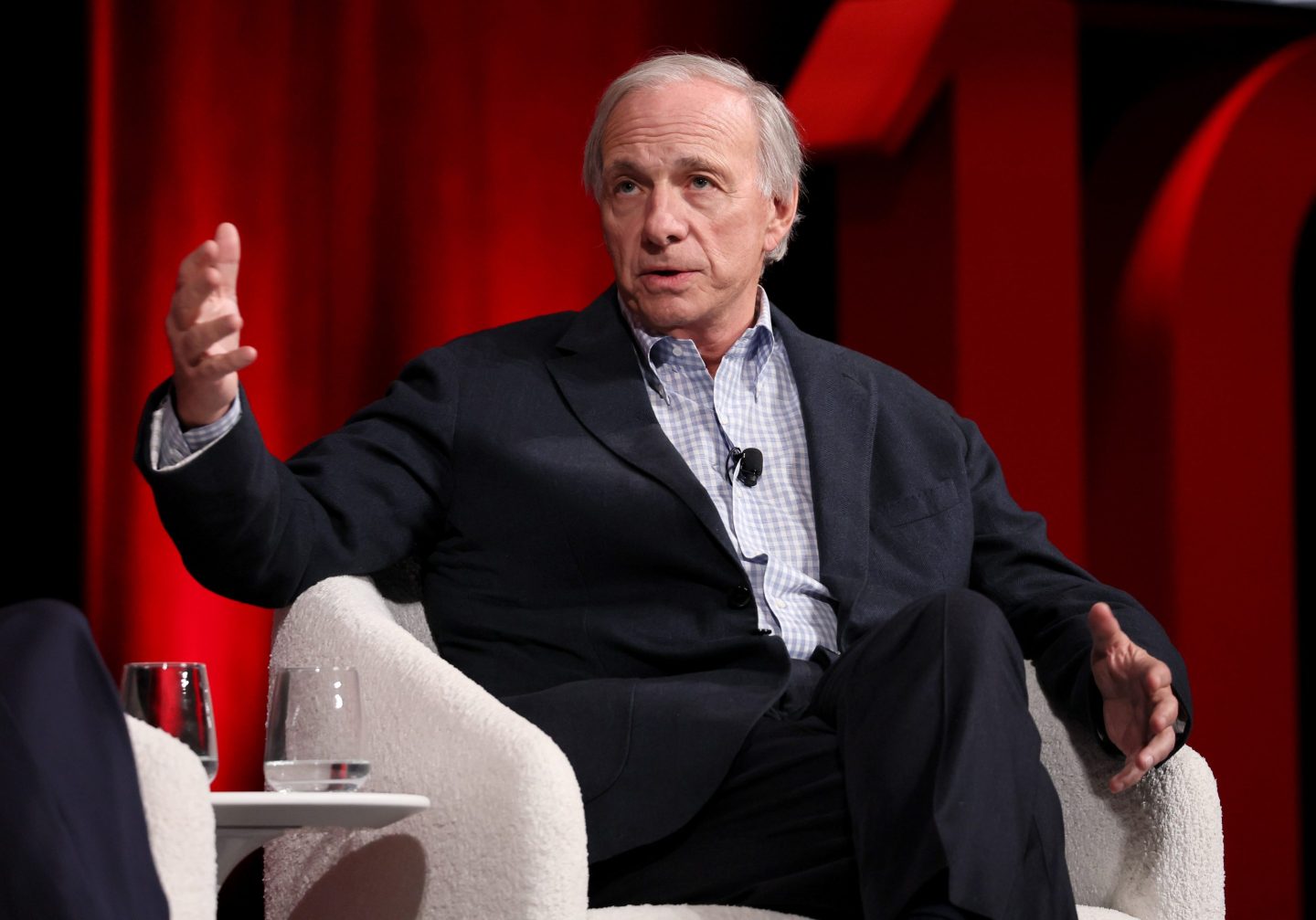Legendary billionaire investor Ray Dalio has issued a stark warning about the future of the United States and the United Kingdom, stating he is not optimistic about either nation’s trajectory and believes “we’re heading into very, very dark times.” Drawing on his own proprietary study of 500 years of history, the founder of the world’s largest hedge fund, Bridgewater Associates, points to a predictable 80-year cycle that suggests an era of significant global and internal strife is upon us.
Dalio’s framework is built on five major forces that drive history in cycles: a money and debt force, internal conflict, geopolitical conflict, acts of nature, and human inventiveness, particularly technology. He argues that both the U.S. and the U.K. are exhibiting clear symptoms of a cycle nearing a dangerous phase.
“The U.K. has a financial problem, the government has a debt problem,” Dalio explained in an appearance on the “Diary of a CEO” podcast, noting that when debts rise relative to income, it squeezes the economy. This financial strain is connected to the second force: intense internal conflict. With large wealth and opportunity gaps, societies are experiencing deep divisions between the left and right, leading to a loss of trust in the system. Dalio believes the U.K. also lacks the culture of inventiveness and the robust capital markets seen in the U.S., further hindering its prospects.
While that’s arguable, what is not is that productivity in the U.K. has been remarkably flat for roughly 20 years. Diane Coyle, a professor of public policy at the University of Cambridge, talked to NPR’s Planet Money about it in 2022. “We’ve had flatlining productivity since the mid-2000s,” she said. “And while compared to other countries, they’ve had slowdowns, we’ve just had a much worse slowdown than anybody.” The London School of Economics revisited the subject earlier this year, calling it a “productivity puzzle” while concluding that the U.K. had “had the worst contraction in labour productivity after the financial crisis” compared to the U.S., Germany and France.
Problems ahead for America
However, Dalio was equally pessimistic about the United States. While acknowledging its culture of entrepreneurship and innovation, he pointed to severe challenges across the board. The U.S. has a significant debt problem, and its internal political landscape is dangerously polarized by wealth and values gaps, putting democracy itself at risk. Furthermore, he argued that it’s in a “great power conflict” with China and its allies, and the two countries are locked in a technology war that will determine the future world order. “The winner of the technology war is going to win all wars,” Dalio stated, referencing historical precedents like the development of nuclear weapons.
As Dalio was speaking, the U.S. and China—with several of the world’s richest men in the mix, including Rupert and Lachlan Murdoch, Larry Ellison and Michael Dell—were negotiating the final details of U.S. control of TikTok. Control over the algorithm was the final detail being negotiated in late September as Donald Trump and Xi Jinping held crunch talks, underscoring the crucial nature of technology in this great-power conflict.
Despite this grim outlook, Dalio’s message is not one of despair but of individual preparation. He insists the crucial question is not whether to be concerned, but “how you as an individual handle it.” He offers clear, actionable advice for navigating the uncertain times ahead.
First, he stresses the importance of flexibility and mobility, citing a Chinese saying: “a smart rabbit has three holes.” This means having the ability to move yourself and your capital away from bad situations and toward better ones—like a rabbit would choose one of its three habitats, depending on its problems in the wild. Dalio suggested that being anchored to an asset such as a house can limit this crucial flexibility in a fast-changing world.
Financially, individuals should focus on building strength through disciplined earning, spending, and saving, paired with smart investing. On a personal level, Dalio advises people to understand their own “nature” and find a path in life that aligns with it. For those early in their careers, he emphasizes that the priority should be learning from the best possible mentors, not chasing the highest-paying job. The most fulfilling life, he argues, comes from having meaningful work and meaningful relationships, which correlate more strongly with happiness than vast amounts of money.
Central to all of Dalio’s advice is his guiding principle for personal growth: “Pain plus reflection equals progress.” He said that he believes the “best learnings come from the pain,” because you have to pay attention to learn how reality works and deal with it, and develop principles for dealing with reality better. “I learned that process and from that process my company Bridgewater became the largest hedge fund in the world,” he said, adding that it it made him a “very wealthy man, which by the way was not my intention, okay? I just wanted to play the game and to have meaningful work and meaningful relationships, that was paramount,” but it just so happened that game made him very wealthy.
For this story, Fortune used generative AI to help with an initial draft. An editor verified the accuracy of the information before publishing.












